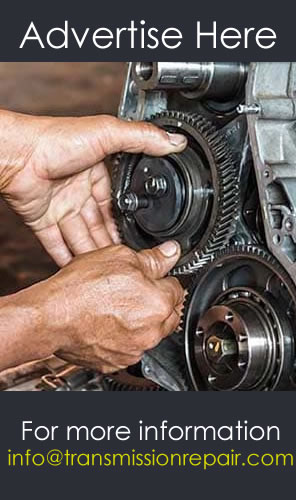BG&S Transmissions
Welcome, to BG&S Transmissions, locally owned and operated by myself, Bill Raile, and my wife Julie. BG&S Transmissions has been serving customers just like you since 1982 and we look forward to the opportunity to work with you. Thanks for considering us for you repair needs. I hope you fine the answers you are looking for on our website. If not give us a call.
TIPS TO KEEP YOUR TRANSMISSION IN GOOD CONDITION
1. Check the Fluid Level
The fluid in an automatic transmission operates the clutches, provides cooling and lubrication, and even drives the vehicle. So few things are more important than proper fluid operating level for keeping the transmission working. Most automatic transmissions have a dipstick for checking the fluid level. If you’re not sure where yours is or how to check the transmission fluid level, refer to your owners manual, or go to your local ATRA-member repair center: They’ll be happy to show you.
10. Take Your Transmission to an ATRA Member Center.
One of the best ways to get more life out of your transmission is to have it serviced regularly at an ATRA member repair center. ATRA members receive access to the latest technical information and training, and must meet a rigid set of requirements to display the ATRA name. The ATRA logo is your assurance that the shop you’ve selected provides quality service at a reasonable price. Don’t trust your transmission work to just anyone?always look for the ATRA logo when choosing a transmission repair center.
2. Check Transmission Problems Promptly
Most transmission problems start out small. They get worse over time. Very often, you can eliminate major repairs simply by taking care of the problem early on. Whether it’s a warning light on the dash, a few drops of fluid on the garage floor, or a change in the way the transmission operates, your best bet is to take your car in to your local ATRA member repair center for service right away. In many cases you’ll be able to avoid a major repair simply by catching it while it’s still a minor one.
3. Service Your Transmission Regularly.
Transmission fluids have a number of unique properties that can wear out over time. And when they wear out, you can bet the transmission itself won’t be far behind. One of the best ways to keep your transmission in good working order is to have it serviced annually. A complete fluid and filter change every year can add years to your transmission’s life, and in the end, save you money.
4. Add a Friction Modifier to the Fluid.
New fluid can really help your transmission last longer. But there are a number of additives on the market that have demonstrated the ability to increase transmission life and reliability significantly, even beyond the extra miles you could expect from regular service. In most cases, you won’t be able to find worthwhile additives in your supermarket or do-it-yourself parts store: The really effective additives are only available to the professional transmission centers. Ask your local ATRA member service repair center for recommendations.
5. Install an Auxiliary Cooler.
The main reason for transmission failure is heat. Transmission temperatures can quickly exceed 300? F: At that temperature, seals begin to harden, clutches begin to burn, and the fluid itself breaks down. To help eliminate excess heat from the automatic transmission fluid, have an auxiliary cooler installed. This is particularly important on vehicles that tow trailers, carry heavy loads or travel over rough or mountainous terrain.
6. Install a Cooler Line Filter.
All automatic transmissions have some type of filter inside them. But these filters vary in effectiveness. Meanwhile, loose dirt and metal particles can quickly erode thrust washer and bushing surfaces, clog up passages, and reduce transmission life. One of the best ways to eliminate these contaminants is to add an in-line filter to the transmission cooler lines. These filters are inexpensive and highly effective in removing damaging particles from the transmission fluid.
7. Service the Cooling System.
You may not realize it, but your car’s cooling system does more than keep the engine running cool: It also cools the transmission fluid, through a heat exchanger built into the radiator tank. So a faulty cooling system cannot only damage your engine; it can reduce transmission life as well. In fact, transmission damage may occur long before the engine overheats. To avoid both engine and transmission problems, keep your car’s cooling system clean and in tip-top condition.
8. Tune the Engine.
The engines and transmissions in today’s cars are linked far more closely than in the past. A problem with engine performance can put much more strain on the transmission than one that’s running properly. That’s another reason why it’s important to keep your car’s engine in good running order. A good running engine reduces the stress on your transmission, so the transmission can last longer without requiring major repairs.
9. Help the Transmission Shift.
Virtually all transmission wear takes place during the shifts; almost none occurs between the shifts. So one way to reduce transmission wear is to reduce the load during the shift. Pay attention to the speed when your transmission shifts normally. Then, just before the normal shift speed, learn to back off the gas just a bit. Easing off the gas will force the shift, while reducing the load on the clutches: A sure way to improve transmission life.
Tips for Automatic Transmission Care.
DO – Change your transmission fluid every year or every 15,000 miles.
DO – When you stop for gas, check your transmission fluid for level and color. If any discrepancies are noted, take your vehicle to a reputable transmission repair center for a closer look.
DO – Check your driveway or garage floor for signs of transmission fluid leakage. If you notice any leaks, have them repaired immediately. Driving your vehicle with low transmission fluid will cause serious transmission damage.
DO – If you notice irregular transmission performance such as slipping between shifts, erratic shifting, no shifting, no reverse, hesitation in the morning when the transmission is cold, loss of power in forward gears, or unusual noises such as grinding or whining, have your transmission checked by a transmission specialist. The longer you drive your vehicle with a malfunction, the more you will damage your automatic transmission.
DO – If you pull a trailer or carry heavy loads, or if you continually go on long trips, or if your engine has a tendency to run hot – consider having an external transmission oil cooler installed.
DO NOT – Shift into reverse until your vehicle has reached a complete stop.
DO NOT – Shift into park until your vehicle has reached a complete stop.
DO NOT – Rock your vehicle back and forth if you get stuck in mud, snow or sand.
DO NOT – Hot rod! Forcing gears to shift at maximum acceleration is just asking for trouble.


